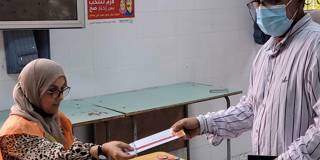Making Libya's Next Election Count
After a decade of chaos and civil war, Libyans have grown disenchanted with politics. In the run-up to the first round of the presidential election on December 24, the opportunity to hear the candidates discuss and debate their plans for the country is a crucial step toward building political trust, legitimacy, and stability.

TUNIS – On December 24, Libyans are scheduled to head to the polls for the first round of a presidential election that has been years in the making. The vote comes after decades of dictatorship, civil war, and, more recently, a period of exasperating uncertainty. But for the results to be widely accepted, voters must be able to make an informed decision at the ballot box.